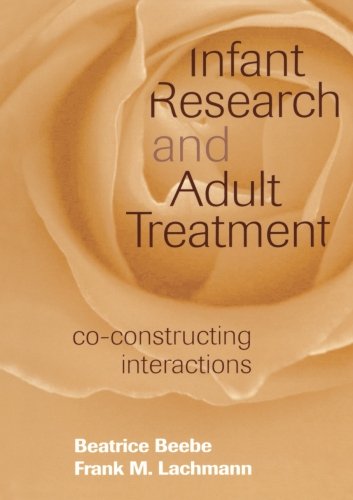

Most ebook files are in PDF format, so you can easily read them using various software such as Foxit Reader or directly on the Google Chrome browser.
Some ebook files are released by publishers in other formats such as .awz, .mobi, .epub, .fb2, etc. You may need to install specific software to read these formats on mobile/PC, such as Calibre.
Please read the tutorial at this link: https://ebookbell.com/faq
We offer FREE conversion to the popular formats you request; however, this may take some time. Therefore, right after payment, please email us, and we will try to provide the service as quickly as possible.
For some exceptional file formats or broken links (if any), please refrain from opening any disputes. Instead, email us first, and we will try to assist within a maximum of 6 hours.
EbookBell Team

4.0
46 reviewsInfant Research and Adult Treatment is the first synoptic rendering of Beatrice Beebe’s and Frank Lachmann’s impressive body of work. Therapists unfamiliar with current research findings will find here a comprehensive and up-to-date overview of infant competencies. These competencies give rise to presymbolic representations that are best understood from the standpoint of a systems view of interaction. It is through this conceptual window that the underpinnings of the psychoanalytic situation, especially the ways in which both patient and therapist find and use strategies for preserving and transforming self-organization in a dialogic context, emerge with new clarity.
They not only show how their understanding of treatment has evolved, but illustrate this process through detailed descriptions of clinical work with long-term patients. Throughout, they demonstrate how participation in the dyadic interaction reorganizes intrapsychic and relational processes in analyst and patient alike, and in ways both consonant with, and different from, what is observed in adult-infant interactions. Of special note is their creative formulation of the principles of ongoing regulation; disruption and repair; and heightened affective moments. These principles, which describe crucial facets of the basic patterning of self-organization and its transformation in early life, provide clinical leverage for initiating and sustaining a therapeutic process with difficult to reach patients.
This book provides a bridge from the phenomenology of self psychological, relational, and intersubjective approaches to a systems theoretical understanding that is consistent with recent developments in psychoanalytic therapy and amenable to further clinical investigation. Both as reference work and teaching tool, as research-grounded theorizing and clinically relevant synthesis, Infant Research and Adult Treatment is destined to be a permanent addition to every thoughtful clinician's bookshelf.